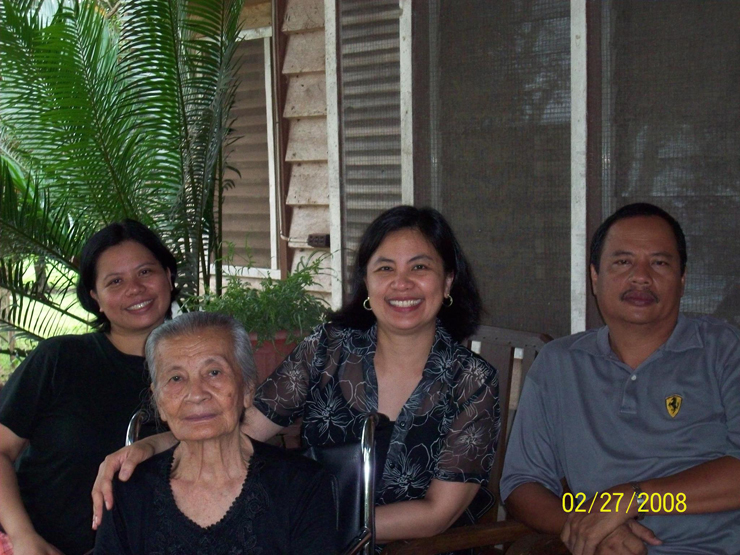Pulong ng Editor
Being at home

The Sabado Family home, Pagadian City, Zamboangadel Sur.
Beth Sabado, Coordinator of the Lay Missionary Central Leadership Team (LMCLT) of the Columbans, writes in Where is Home? in this issue of the question that faced her as the plane in which she flew from Hong Kong to Manila in February 2013 was about to land: ‘Where is home for me now?’ She was on her way to attend the funeral of her mother, Pacita Egipto Sabado. Her father, Telesforo, had predeceased Pacita.
Beth shares how she was moved by a play she saw in Birmingham, England, where some Columban lay missionaries are based, called Refugee Boy. One of the characters in the play defines home as ‘a place where I can unpack my luggage down to the very bottom’. Some are blessed by God with the ability to do that wherever they find themselves, even for a few days.
In the mid-1980s Bishop Bienvenido S. Tudtud of Marawi visited my widowed father in his home in Dublin. Later my father said to my brother, ‘The Bishop made me feel at home’. My brother, laughing, said to Dad, ‘You were the one supposed to make him feel at home!’ My Dad, a very simple person who wasn’t used to meeting bishops, was a person ‘at home with himself’, as was Bishop Tudtud. They made each other feel at ease. Both died not too long after that, Bishop Tudtud in a plane crash near Baguio on 26 June 1987 and my father, suddenly, on 11 August that year.
My experience is that a person who is at home with his or her self can truly make another feel the same way, especially a person in distress. I have seen this in Holy Family Home for Girls in Bacolod City where a new girl, sometimes full of anger because of what has happened to her, often having been betrayed in the most brutal way in her own family, is welcomed by other girls who have been through similar situations. I have seen teenage girls there, without being asked by the Sisters or social workers in charge, staying every moment with a new girl every for two or three days until she realizes that she can be at home there and lets go of her anger and anxieties.
A few days ago I read the extraordinary story of Hieu Van Le who will become Governor of South Australia in September, a ceremonial position in which he will represent Queen Elizabeth of Australia who resides in England, where she is also queen. He arrived in Australia as a refugee from war-torn Vietnam in 1977. In the video below he tells, very movingly, how when they arrived at Darwin, having been at sea for a month in a boat never intended for such a journey, two casually-dressed Australian men waved at them, one of them raising his glass of beer and saying, ‘G’day, mate. Welcome to Australia!’ That simple greeting had a profound impact on the refugees.
Hieu Van Le quickly settled into life in Australia where his two children were born. He and his wife Lan felt so much at home that they named their sons after two famous Australian cricketers. Cricket, a sport that is a passion with many Australians, is totally unknown in Vietnam. But while becoming Australian, he and Lan didn’t have to cease being Vietnamese.
The experience of Hieu Van Le mirrors that of many missionaries. They have to adapt to new ways, often very different to what they have been used to. Yet their hosts don’t expect them to cease being who they are. At times they see themselves as having two homelands, at times as having none. At times they may keenly miss their country of origin. At times when visiting that country they may keenly miss their adopted country.
When Hieu Van Le and his companions arrived in Australia they didn’t have much luggage to unpack. But by the welcome they received from the two men on the quayside, and later from ‘official Australia’, they felt that they could unpack the little that they had ‘down to the very bottom’.
For us Christians the ultimate reason for feeling at home no matter where we find ourselves is that ‘the Word became flesh and lived among us’ (John 1:14). The scholars tell us that the original means he ‘pitched his tent among us,’ that Jesus Christ, God who became Man, threw in his lot with us. And more than that: at the Last Supper Jesus said, ‘Those who love me will keep my word, and my Father will love them, and we will come to them and make our home with them (John 14:23).
